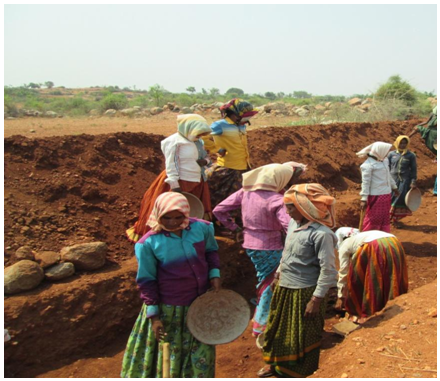Rural women need gender equality, workplace safety
Safety and health at work is crucial as the Philippines eases COVID-19 restrictions. While there are measures to promote occupational safety and health (OSH), women and men do not face the same concerns.
The economic and social impact of OSH on people is high. This is evident in the Joint Estimates by the International Labour Organization (ILO) and the World Health Organization (WHO) wherein selected workplace risk factors results in nearly two million premature deaths per year globally, 80 per cent of which due to diseases while 20 per cent are due to injuries.
“There are differences in the hazards and risks by which men and women are exposed, and in the way they respond to the same exposure. However, the traditional OSH approach has not considered the gender-specific differences among workers to tackle gender specific patterns of OSH issues between men and women”, said Dr. Yuka Ujita, ILO Senior OSH Specialist.
In a recent ILO forum, these gender disparities on safety and health at work were tackled, highlighting the need for a strong and inclusive safety and health culture. Dr Ujita, on the other hand shared that often men attend OSH training sessions, but the voices of women are important since they are the primary managers of households in rural communities.
There are almost two million women who work in agriculture, fishing and mining sectors in the Philippines. Apart from gender specific risks, women rural workers face specific pattern of injury and disease, including violence and harassment, lack of basic labour rights and social protection benefits.
“We witnessed how the COVID-19 pandemic magnified the pressure on women to balance care and work responsibilities. These gender roles are often overlooked, which may cause adverse impact on health and safety,” said Director Khalid Hassan of ILO Country Office for the Philippines .
The Department of Labor and Employment’s Occupational Safety and Health Center (OSHC) outlined existing policies and programmes during the forum, emphasizing that compliance to minimum OSH standards is not costly.
“The government is not after penalties, but we are rather trying to find balance between strategic enforcement of labour standards with developmental approaches, to ensure services are available and help enterprises to comply and improve safety and health in their workplaces, especially those in the rural sector and informal economy”, said Mr Rey Jose Soriano of the OSHC.
Additionally, OSHC urged those starting up on gender equality and OSH particularly those in the informal economy and micro, small and medium enterprises (MSMEs) to reach out and inquire about availing of free trainings and consultations to help assess risks and hazards in their workplaces. Taking a proactive approach to identifying and resolving OSH deficits can improve safety and health of workers as well as enhance productivity and profit for enterprises.
Both ILO and OSHC advised for practical and low-cost methods and approaches to help improve OSH deficits, especially in rural sectors. Risk-based OSH management contributes to gender equality and women’s empowerment which benefits both the workers and businesses.
Through effective social dialogue, governments, workers, and employers actively participate in all phases of OSH decision-making processes.
Workers’ representatives’ Ms Asuncion Binos-Blance of SENTRO and Ms Anna Capillas of the Federation of Free Workers (FFW) shared their experience in organizing women workers and how women’s participation resulted in positive changes.
According to the Employers’ Confederation of the Philippines (ECOP) , “providing a voice through social dialogue for both the employers and workers reassure workers that they can return safely and their welfare is prioritized by employers”, said Ms Dang Snyder of ECOP.
In turn, businesses are rewarded with a resilient and productive workforce despite the challenges brought about by the COVID-19 pandemic. ECOP hopes to buildnew partnerships and do more to promote gender equality and women empowerment.



